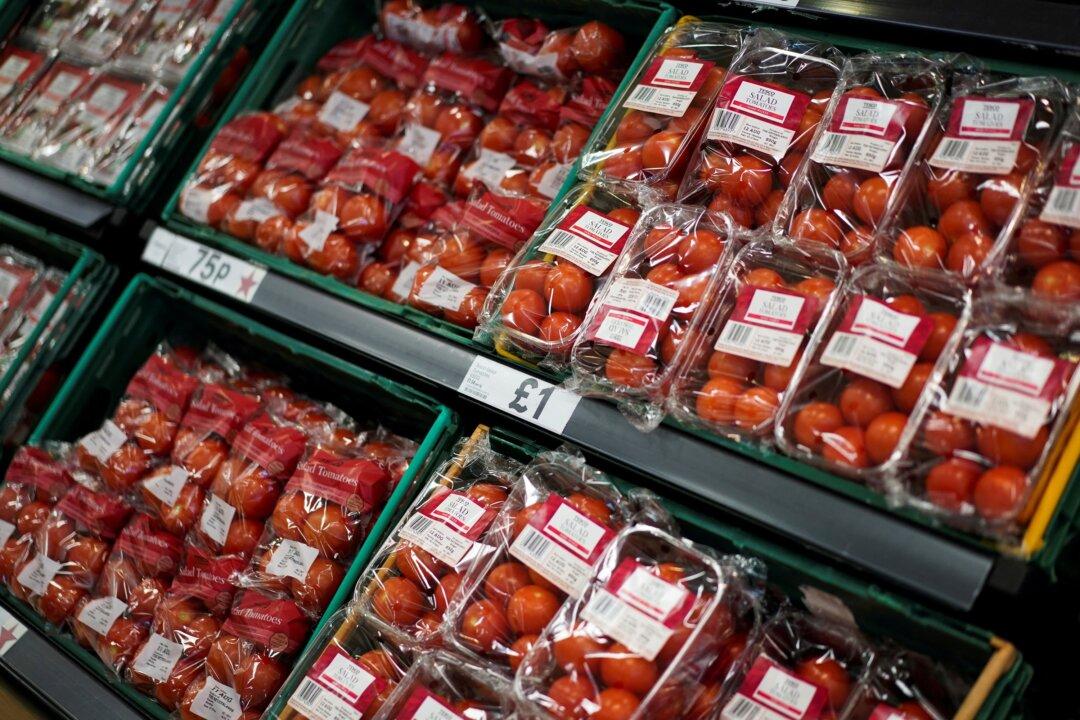Shortages of tomatoes and other vegetables in UK supermarkets will be a temporary issue that should be resolved in two to four weeks, Environment Secretary Therese Coffey has said.
Major supermarkets such as Tesco, Aldi, Asda, and Morrisons have introduced customer limits on tomatoes and some other fresh produce, after a combination of bad weather and transport problems in Africa and Europe caused supply shortages.





